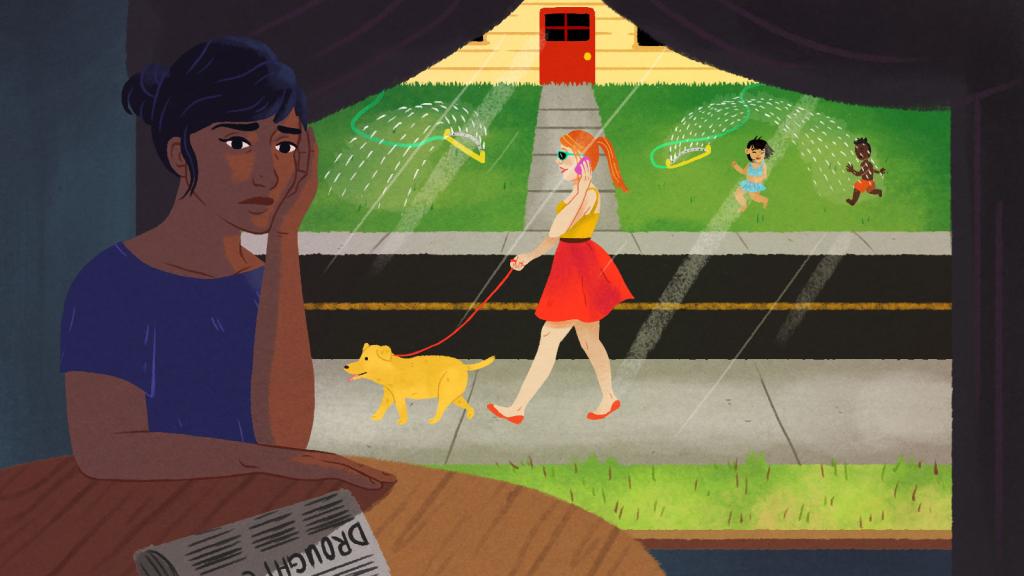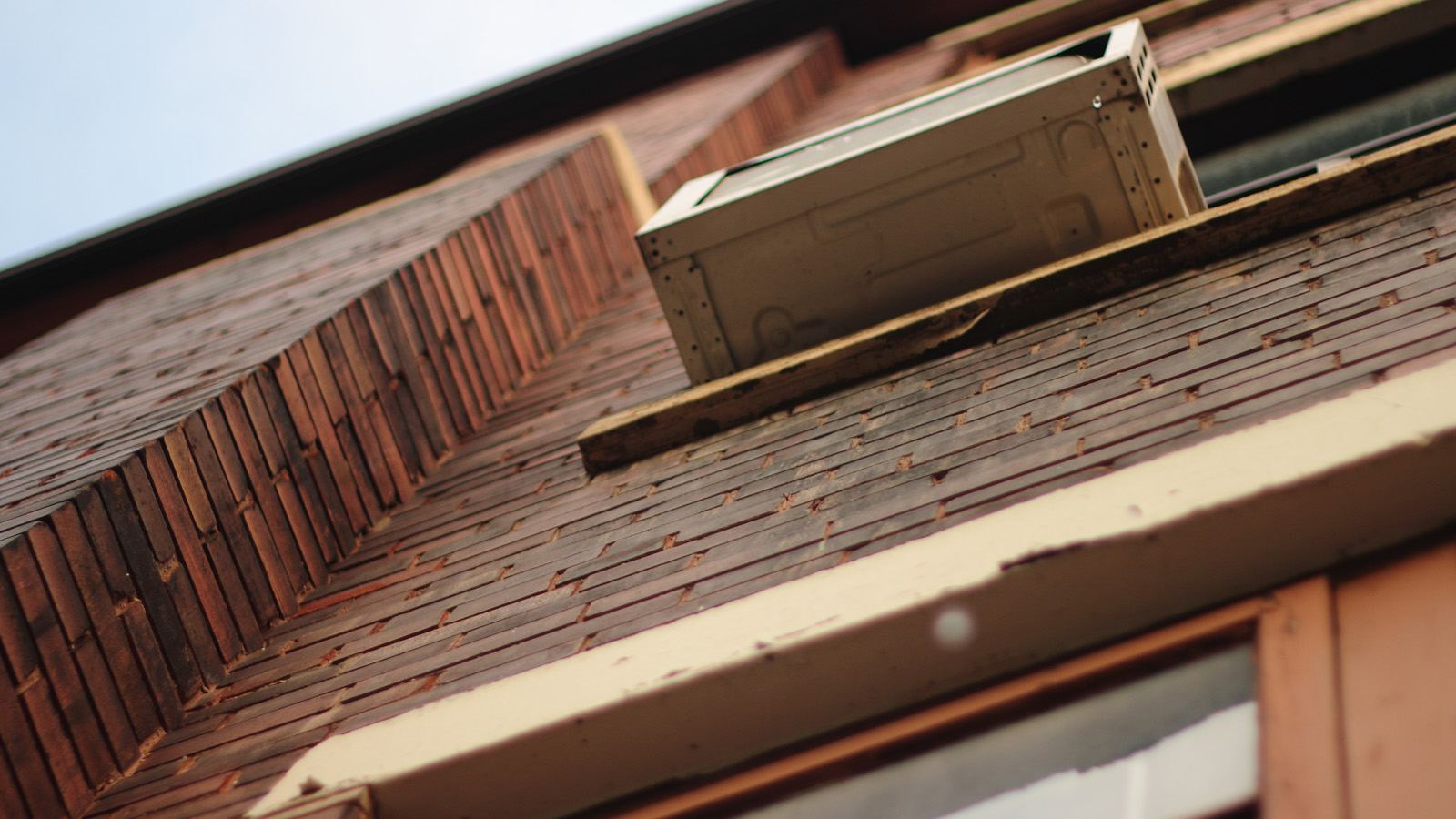Send your question to Umbra!
Q. Is the water dripping from my upstairs neighbor’s air conditioner full of chemicals? I often sit out on my fire escape and wonder if I should be concerned about the water dripping not only on me but also on my potted herbs and salad greens (which I eat).
Kate
Jersey City, N.J.
A. Dearest Kate,
Your letter gives me an idea for the next great superhero movie: Our mild-mannered heroine sits out on the fire escape, eating salad while unknowingly absorbing drip after drip of radioactive goo from the upstairs AC unit. The next morning, she wakes up with superpowers and bounds off to battle villains, protect the innocent, and restore peace to Jersey City. Is that blockbuster material or what?
Unfortunately for my prospects of summer-movie success but fortunately for your health, Kate, air-conditioner water will no sooner hurt you or your garden than it will enable you to swing between skyscrapers. The stuff dribbling out of the neighbor’s AC is essentially pure, distilled water, not chemical-ridden toxic waste. That doesn’t mean you can drink it, mind you, but there’s no need for you to rig up an umbrella out back, either.
Those drops don’t indicate your neighbor’s AC is broken or leaky, by the way – window units are designed to drip. What’s happening is this: In order to cool your home, the AC pulls hot, humid air out of the building and passes it over chilled cooling pipes. This temperature plunge forces the moisture to condense out of the air (the water we’re talking about is often called “air conditioner condensate”) and collect in the unit, where it’s then channeled out of the machine through a pipe and onto your fire escape. So really, AC both cools and dehumidifies the home, an effect most appreciated on those sticky summer nights.
But while AC condensate is generally free of heavy metals or other worrisome contaminants, it might still contain some nasty bugs. Internal leaks or clogs can create stagnant pools inside the unit, forming a sort of beach party for bacteria. (In fact, the infamous 1976 outbreak of Legionnaire’s disease was traced back to a hotel’s AC system.) So it’s not considered potable, but the splish-splash is OK to use to irrigate plants – just wash them carefully before eating. And to be safe, Kate, I wouldn’t sit where the water hits your face or hands, and a soapy wash afterwards is a good idea.
Now, I certainly don’t mean to scare you and your plants off the back porch. In fact, your inadvertent reuse of AC condensate is a great example of smart water conservation. A home AC unit can suck anywhere from two to 10 gallons of perfectly good water out of the air every day – so why just dump it all on the ground? Some savvy gardeners already capture the drips from their units, using strategies as simple as sticking a bucket under the outflow pipe, and as elaborate as building automatic watering systems over their beds. Think of it as a cousin to the rain barrel: using water from the sky so you don’t have to turn on the tap.
Plenty of larger-scale operations have wised up to the water savings draining out of their windows, too. Innovative systems in jungle-y climates like Texas capture hundreds or even thousands of gallons of water every day: In San Antonio, a mall reuses about 250 gallons per day in its cooling towers, and the library saves up to 1,400 gallons daily to water the grounds. At the University of Texas, a combined rainwater-condensate system collects up to 110,000 gallons per day, and Texas A&M reuses AC water from many campus buildings. There’s lots more potential for setups like this, especially in wiltingly muggy places from Atlanta to Chicago — including, I’d wager, Jersey City.
Mind you, this isn’t my blessing to crank the AC willy-nilly. Arctic air in the summertime requires loads of energy, and the overheated have myriad other options in a heat wave. But if you’re going to use AC, you might as well find the silver lining in the dreadfully humid weather and gobble up all the free water you can.
Drippily,
Umbra



